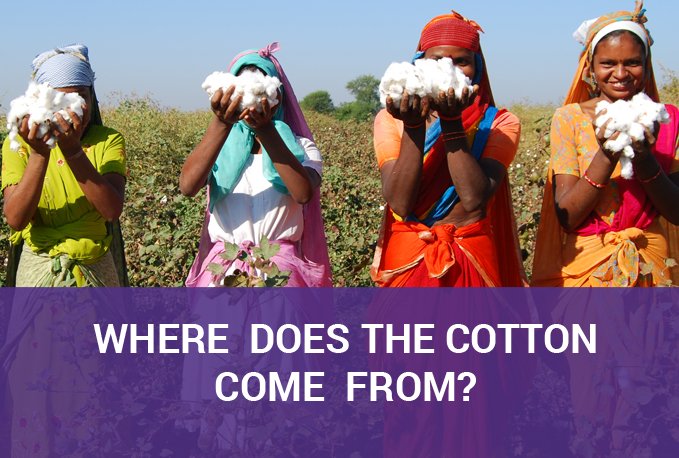Cotton is the most important natural fiber used in the textile industries worldwide, amounting to 40% of the textile production. India is among the three Top cotton-producing countries (with USA and China).
No chemicals are used in Organic Cotton manufacturing, and the Eco-friendly low-impact and fiber-reactive dyes produce lasting vibrant colours. Consumers need to be aware that their choices can literally save the lives of our farmers, our rivers and streams and give our youth a chance to grown up in an unpolluted environment.

The Organic cotton that goes into the garments produced by RCM is farmed by Chetna Organic, working with small and marginal farmers to improve their livelihood options and make farming a sustainable and profitable occupation. This means the garments do not carry the stigma of exploited workers. Fair-Trade farmers and employees are treated with respect.
RCM factories source all of their Fair Trade, organic cotton from Chetna and has been involved in the Chetna project since its inception in 2004. for more information on the Chetna Organic project: http://www.chetnaorganic.org.in

